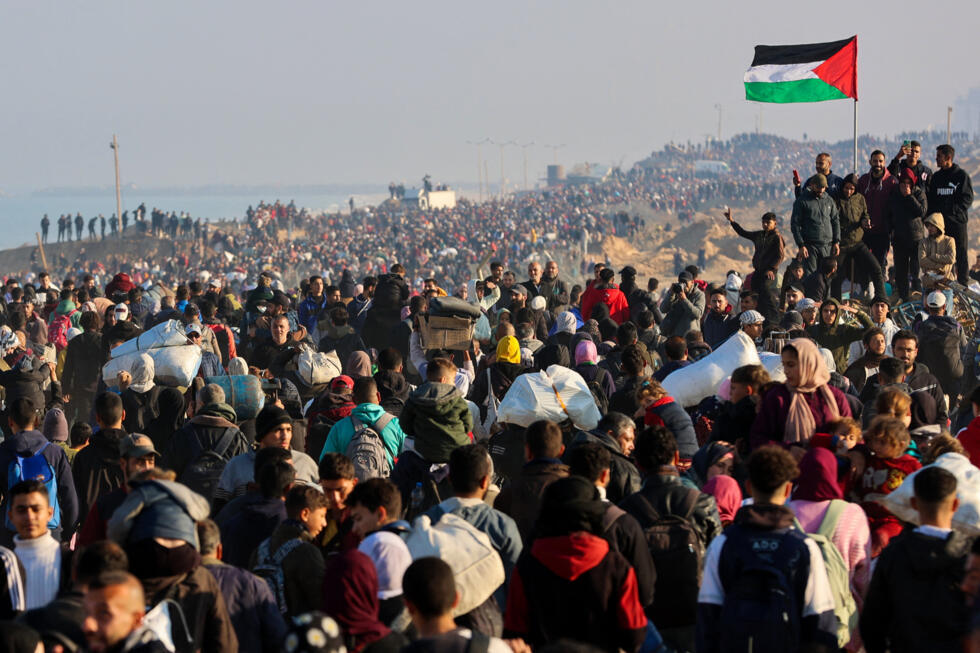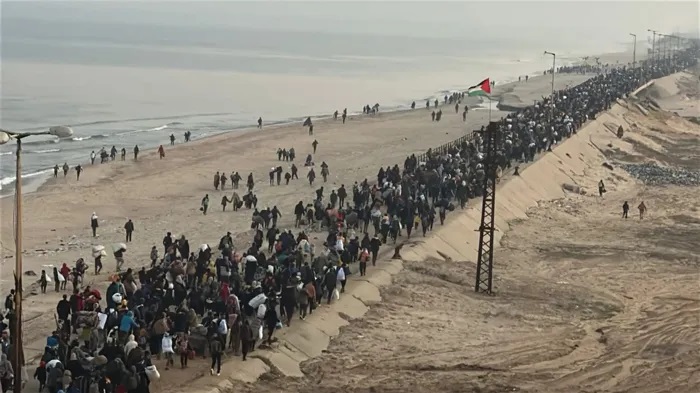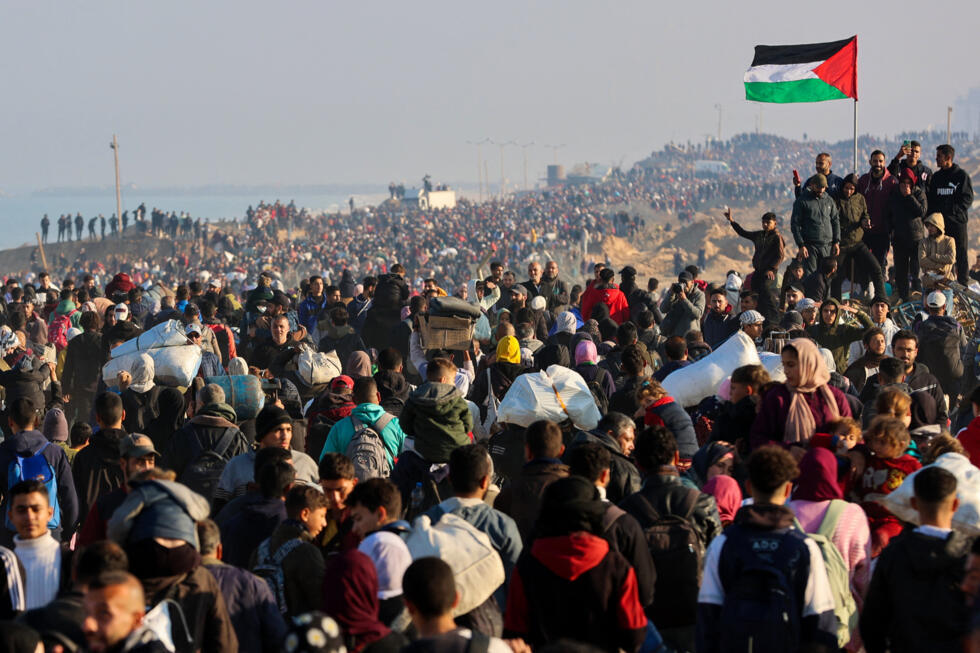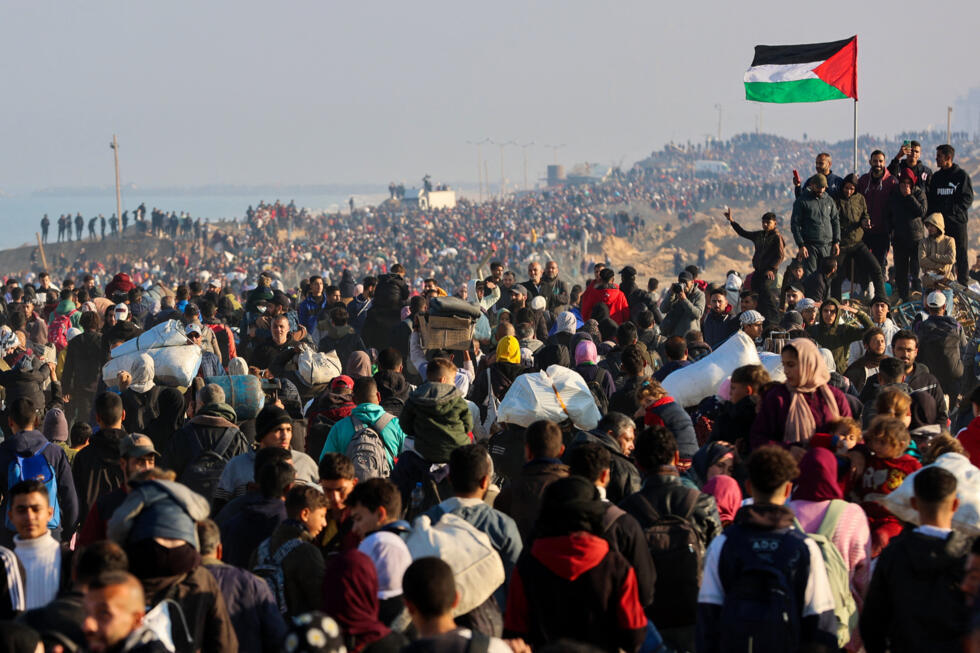
Sana'a – SABA: Abdulaziz Al-Hazzi
U.S. President Donald Trump continues to promote a plan to relocate Palestinians from the Gaza Strip to neighboring countries, permanently displacing them from the territory. This proposal has sparked widespread Palestinian, Arab, and international opposition, and rejection from regional and global organizations.
While presenting his proposal, Trump often appeared more like a real estate developer than a U.S. president. Reading from a prepared statement, he surprised the world with the phrase: "The United States will take control of the Gaza Strip."
Last Tuesday, during a press conference at the White House with Israeli Prime Minister and war criminal Benjamin Netanyahu, Trump revealed his intention to seize control of Gaza and forcibly displace its Palestinian population, leading to broad regional and international condemnation.
In what was later seen as a backtrack, Trump stated that there was no rush to implement his Gaza plan, which includes taking control of the territory and displacing its residents. He framed his proposal as a business-oriented approach to achieving peace, telling reporters at the White House: "We're not in a hurry on this."
In a later development, Israeli reports revealed that in July 2024, Joseph Bilzman—a professor of economics and international relations at George Washington University and head of the Center of Excellence for Middle East and North Africa Economic Studies (CEESMENA)—submitted a detailed plan to Trump's team for what he described as the "redevelopment" of Gaza after the war.
According to an extensive report published by The Times of Israel on Friday evening, Bilzman's plan outlines a study proposed to Trump, aimed at resettling Gaza’s Palestinians and reconstructing the territory following its near-total destruction due to the war.
Bilzman’s proposal is based on the assumption that Gaza’s economy has collapsed completely. He cited World Bank data from 2007 to 2022, which indicates an average GDP growth rate of only 0.4% annually, while per capita GDP declined by 2.5% yearly due to high population growth.
Additionally, he pointed out that Gaza’s unemployment rate reached 45% in 2022, with 53% of the population living below the poverty line, compared to only 13% in the West Bank. Based on these figures, Bilzman proposed a comprehensive plan to "rebuild Gaza from scratch."
His plan starts with the idea that reconstruction requires the complete evacuation of the strip, including the destruction of Hamas’ underground tunnels and the removal of all remaining concrete structures. He further suggested recycling and reusing the demolished concrete in new construction projects.
The total cost of rebuilding Gaza was estimated in the plan to be between $1 trillion and $2 trillion, with reconstruction expected to take five to ten years.
What raises further suspicion about Trump's personal business interests in Gaza is that over the past year, he has repeatedly highlighted the territory’s prime seaside location, describing it as "developable." His son-in-law, Jared Kushner, made a similar argument last year, calling Gaza’s waterfront "extremely valuable."
During his inaugural address last month, Trump hinted at his vision for Gaza, saying shortly after taking the oath: "It’s a great location, by the sea, with the best weather… Everything is good. Some beautiful things can be done there." He then added that he "might" be willing to help with reconstruction.
Trump's apparent openness to involvement evolved over the following two weeks into the plan he unveiled last Tuesday—to take control of Gaza, potentially with U.S. military assistance, and transform it into an "incredible international place." Sending U.S. troops to the region would mark a stark contradiction to Trump’s previous criticisms of American foreign military engagements. In 2020, while addressing students at the U.S. Military Academy (West Point), he declared:
"We are ending the era of endless wars. Our focus will be on defending America's vital interests, not solving ancient conflicts in faraway lands most people have never heard of."
Arab nations and Palestine have openly rejected Trump's past statements suggesting that Palestinians should be relocated to Egypt or Jordan. Human rights advocates have condemned such proposals as a form of ethnic cleansing.
While Trump has not provided many details about his proposal, he has outlined the basic elements of a plan that has already sparked significant backlash—and is expected to provoke even more opposition.
On January 19, the first phase of a ceasefire and prisoner exchange agreement between Hamas and Israel took effect. Mediated by Qatar, Egypt, and the U.S., the agreement stipulates indirect negotiations for a second phase, set to begin no later than the 16th day of the truce, with a final agreement expected before the end of the fifth week of phase one.
E.M


